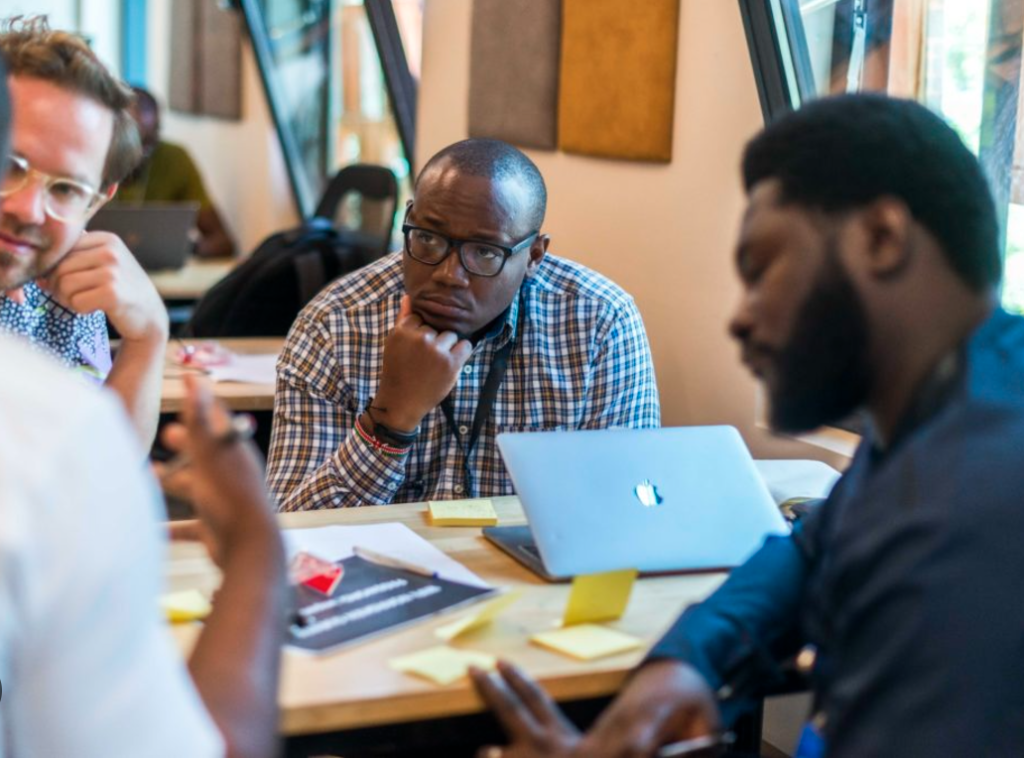As Africa continues its rapid journey to digital transformation, the need for robust cybersecurity measures has never been more pressing. According to GSMA’s Mobile Economy Sub-Saharan Africa 2023 Report, the number of mobile phone users in sub-Saharan Africa is projected to soar to 615 million by 2025, and the number of internet users across the continent is expected to surpass 1 billion by 2023. Our CEO and Founder, Akim Benamara in today’s TechTalk Thursday, sheds light on the growth digital connectivity brings to the continent with immense opportunities but also exposes the continent to a heightened risk of cyber threats.
The scale of the cybersecurity challenge in the region is highlighted by the fact that in 2023, according to Check Point Research, Africa ranked as the region with the highest exposure to cyberattacks per country. During the second quarter of 2023, Africa recorded the highest average number of weekly cyberattacks per organization, marking a 23% rise from the same period in 2022. Despite these risks, only seven African countries—Mauritius, Egypt, Tanzania, Ghana, Tunisia, Nigeria, and Morocco—are ranked among the top 50 globally for cybersecurity readiness according to the ITU Global Cybersecurity Index . These countries have made significant strides across five key pillars: legal measures, technical measures, organizational measures, capacity development, and cooperation.
As more people and businesses rely on technology for communication and transactions, the potential for cyber attacks continues to grow exponentially. What’s more, is that major sectors of the economy such as finance, government, education, and agriculture are increasingly embracing digital technologies and moving their activities to online platforms. Rapid digital connectivity and innovation expansion are promising yet highlight the urgent need to strengthen cybersecurity frameworks. Addressing these challenges is crucial for safeguarding Africa’s digital future and ensuring that the benefits of technology are fully realized while minimizing the risks.

Challenges Facing Cybersecurity in Africa
Cyberattacks can target businesses, individuals, and governments in various forms, including malware, ransomware, cyber espionage, data leaks, DDoS (Distributed Denials of Service) attacks, social engineering, and the sale of access on underground forums. However, they are all rooted in similar cybersecurity challenges. Here are some key challenges facing cybersecurity and contributing to Africa’s vulnerability:
Lack of Information Security Infrastructure and Resources
The lack of robust information security infrastructure is one of Africa’s most pressing challenges. Approximately 90% of African businesses operate without comprehensive cybersecurity protocols, leaving them extremely vulnerable to cyber threats. This deficient or outdated infrastructure significantly impairs the ability to detect, prevent, and respond to cyberattacks effectively.
Many organizations across the continent lack the essential tools and technologies needed to safeguard their systems and data from sophisticated cyber threats. Despite the continent’s enormous potential, strengthened by its youthful population—with approximately 70% of the Sub-Saharan population under 30 years—the infrastructure to support and secure this digital growth remains underdeveloped.
Moreover, this lack of infrastructure often stems from insufficient resources to support cybersecurity efforts in Africa. Many countries face significant budget constraints and have limited access to technical expertise, which undermines their capacity to tackle cybersecurity challenges proactively. As a result, governments and businesses struggle to invest in the necessary tools and technologies that could mitigate cyber risks.
These financial and technical limitations compel many organizations to operate with minimal or outdated security measures, further increasing their vulnerability to cyberattacks. Basic cybersecurity infrastructure, such as firewalls, intrusion detection systems, and regular software updates, often goes unaddressed due to inadequate funding.
Lack of Awareness About Cybersecurity
Another notable challenge confronting Africa in cybersecurity is the widespread lack of awareness and education about the subject. Many individuals and businesses remain unaware of the inherent risks associated with technology use and consequently fail to take adequate protective measures. This lack of awareness creates vulnerabilities that cybercriminals can exploit to compromise sensitive information or disrupt operations.
Cybersecurity is often misunderstood or overlooked, leaving many individuals and organizations susceptible to attacks. While several initiatives exist to raise awareness about cybersecurity, these efforts must be significantly expanded to reach a broader audience. It is crucial to prioritize cybersecurity education within schools and universities and to conduct extensive public awareness campaigns.
Hours delivered back to the business
SOX compliance in Settlement process automation
Success rate of bot case completion
For functional release of OBT, RTS and OGS
The Chalange
Following a period of rapid growth through acquisition, Paysafe were looking to achieve enterprise-wide operational efficiencies and alignment. In order to do this, they chose to focus firstly on their customer services, merchant operations, risk and compliance functions.
Paysafe’s fast-paced expansion had resulted in a lack of process consistency & standardisation across their acquired brands. The numerous manual and non-transparent processes at play were something Paysafe were keen to address.
Additionally, in the face of increasing industry regulation and compliance requirements, Paysafe were eager to stay ahead of the curve in responding to these changes, whilst also maintaining the relentless customer focus and agility that is at the core of their DNA.
What did
Tecnologia do
Paysafe & Tecnologia’s shared appreciation for the power of combining scale and global reach with flexibility and agility made our partnership an obvious choice. Tecnologia have been working with Paysafe since November 2020 in 2 key workstreams: Automation Delivery and Mobile Chatbot Migration, supporting the Paysafe Automation365 team specialising in Cognitive and Robotic Automation.
Automation Delivery – Tecnologia are working with the Paysafe Automation365 team to identify, design, build, test and deploy automated solutions using UiPath Automation Software. Thus far Tecnologia have delivered 28 Automations across 3 core business functions: Merchant Services, Consumer Services and Risk.
Mobile ChatBot Migration – Tecnologia led the migration of chatbots from a web browser platform to mobile platforms (Android and iOS). In addition to this, Tecnologia has implemented an intermediate communication layer to enable a seamless handoff between chatbot and live agent providers to win and support new deals.

The Results
- 30+ processes delivered
- Over 30,000 hrs delivered back to the business
- 100% SOX compliance in Settlement process automation
- >95% success rate of bot case completion
- SDK delivered for native platforms, enabling Virtual & Live agent communications across multiple mobile platforms



